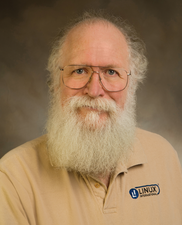Jon 'maddog' Hall writes about the community
Meet the Maddog

Jon 'maddog' Hall introduces himself and rolls out the first installment in his new monthly community-focused column.
For the first installment of my new monthly column in Linux Magazine, I decided to write an introduction and tell you a little about myself.
Background
I started programming in 1969, moving from being an electrical engineering student into the relatively new world of software. Since that time, I have worked as a programmer, systems administrator, quality engineer, product manager, and technical marketing manager. While in this last role, I met Linus Torvalds in May of 1994 and recognized that Linux had a commercial future. I orchestrated the effort to get Linus an Alpha processor from Digital Equipment Corporation, and I helped put together a team to do the port of Linux to the Alpha, which also formally moved Linux from being a 32-bit system to a 64-bit system, and – through the restructuring of the source code tree – made it easier to port to other platforms.
Although I had been using "free software" – what we used to just call "software" – for a long time and had even helped publish collections of it for Digital's customers, meeting Linus Torvalds and being introduced to the Linux community is what made me start thinking about the implications of free software on the world's stage. From that point on, as I continued to talk about Digital's own products – Digital Unix, in particular – I also started talking about Linux, free software, and the Free Software Foundation.
[...]
Buy this article as PDF
(incl. VAT)
Buy Linux Magazine
Subscribe to our Linux Newsletters
Find Linux and Open Source Jobs
Subscribe to our ADMIN Newsletters
Support Our Work
Linux Magazine content is made possible with support from readers like you. Please consider contributing when you’ve found an article to be beneficial.

News
-
Parrot OS Switches to KDE Plasma Desktop
Yet another distro is making the move to the KDE Plasma desktop.
-
TUXEDO Announces Gemini 17
TUXEDO Computers has released the fourth generation of its Gemini laptop with plenty of updates.
-
Two New Distros Adopt Enlightenment
MX Moksha and AV Linux 25 join ranks with Bodhi Linux and embrace the Enlightenment desktop.
-
Solus Linux 4.8 Removes Python 2
Solus Linux 4.8 has been released with the latest Linux kernel, updated desktops, and a key removal.
-
Zorin OS 18 Hits over a Million Downloads
If you doubt Linux isn't gaining popularity, you only have to look at Zorin OS's download numbers.
-
TUXEDO Computers Scraps Snapdragon X1E-Based Laptop
Due to issues with a Snapdragon CPU, TUXEDO Computers has cancelled its plans to release a laptop based on this elite hardware.
-
Debian Unleashes Debian Libre Live
Debian Libre Live keeps your machine free of proprietary software.
-
Valve Announces Pending Release of Steam Machine
Shout it to the heavens: Steam Machine, powered by Linux, is set to arrive in 2026.
-
Happy Birthday, ADMIN Magazine!
ADMIN is celebrating its 15th anniversary with issue #90.
-
Another Linux Malware Discovered
Russian hackers use Hyper-V to hide malware within Linux virtual machines.

